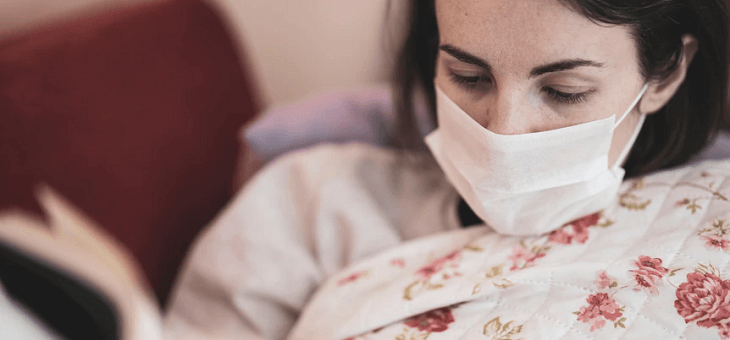After spending a week in isolation with COVID-19, many people are desperate to reconnect with family and friends.
But some might wonder if it is truly safe to re-enter the social scene, even if their symptoms have subsided.
Under an agreement by national cabinet all COVID cases must isolate for seven days from the date and time of their first positive test before they can venture outdoors again.
NSW Health says anyone still experiencing the classic virus symptoms on day eight — a cough, runny nose, sore throat or shortness of breath — must remain isolated until 24 hours after they have stopped.
But for those who’ve seemingly ‘recovered’ from the virus, when is it prudent to revert to normal life?
Should you limit yourself to a walk to the local coffee shop while wearing a mask? Or could you head straight to the pub to debrief with mates?
Laureate Professor Nick Talley, editor in chief of the Australian Medical Journal, is of the opinion if you’re feeling well after seven days “you can go back to most of your activities”.
But he said if you still have any flu-like symptoms, you should stay home and definitely avoid contact with vulnerable people.
“As long you haven’t got respiratory symptoms, I think you’re okay in terms of your infectiousness,” he said.
Prof. Talley, however, was concerned at new data from Japan suggesting people carrying the Omicron strain were potentially most infectious three to six days after their first symptoms.
He said the “worrying” research cast doubt on the accepted hypothesis that people with COVID were more likely to be infectious in the first five days.
According to a study from Japan’s National Institute of Infectious Diseases, “you were potentially infectious still up until 10 days” after infection with Omicron, Prof. Talley said.
The current seven-day isolation period was reasonable, Prof. Talley said, but he warned against a move to five days as adopted in some other countries.
“If we shortened that we may put people out there who are very infectious,” the University of Newcastle professor said.
“We want to reduce transmission not increase it. That should still be the goal.”
Deakin University epidemiologist Catherine Bennett said it was tricky to give blanket advice as everyone experienced COVID in different ways.
Professor Bennett said it was likely many people were infected days before their positive tests, so seven days of quarantine would capture the critical contagious period.
However, she said people should minimise socialising in the days after leaving isolation and wear a mask in most settings as they may still be infectious.
NSW Health also says people should wear a mask in high-risk settings for the first three days after recovery.
Prof. Bennett advised people to keep their distance from others even when outside and reconsider attending dinners at cosy homes.
She said to particularly avoid seeing vulnerable people for several days after leaving isolation.
“Put if off for as many days as you can,” she said.
“Just that little bit of caution can prevent you from sharing it with someone else.”
People should be mindful that even if you had only mild symptoms, it doesn’t mean a person you infect would be as lucky.
Doctors also advise people to not undergo vigorous activity soon after recovering, such as robust exercise, as that has been linked to the development of long COVID.
 © 2020 Australian Broadcasting Corporation. All rights reserved.
© 2020 Australian Broadcasting Corporation. All rights reserved.
ABC Content Disclaimer

